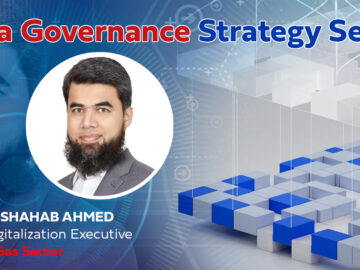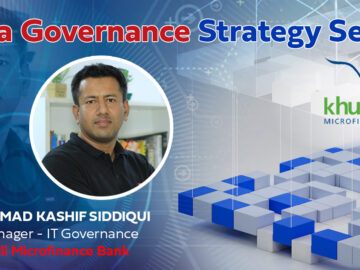“We are witnessing a rising demand for online shops and e-commerce internationally but in Pakistan as well”, said Idrees Butt, Founder & CEO at RLTSquare, during an exclusive Q&A session with our Editor in Chief and shared his insights on the impact of COVID-19 outbreak on the overall economy and e-Commerce landscape in Pakistan.
1. Has your business been affected by COVID-19? How are you managing your day to day operations?
We, at RLTSquare, experienced some significant challenges in interacting with our international clients in the midst of COVID-19. The biggest problem was – and still is – the fact that many SMEs ran into a lot of trouble after the worldwide implementations of national lockdowns due to the rising cases of the novel coronavirus. In this regard, it doesn’t matter if a client is from the US, UK, or even Pakistan. Our observation is that businesses from all over the world are struggling with the pandemic and its effects. After the outbreak, many of our clients suspended their projects and plans with us. Even today, many projects are still on hold. But on the bright side, we are witnessing a rising demand for online shops and e-commerce internationally but in Pakistan as well.
2. Since online shopping is on the rise, It certainly is an opportunity for a business like yourself. How are you making sure to cash it fully?
Surely, many SMEs are considering shifting online now. At RLTSquare, we aim to fully satisfy the critical needs of business owners in these times. Therefore, we put a lot of effort into our creative processes in finding new ways to reach out to the business owners who are willing to go online and to get in touch with them. We want to help them to move online, to stay competitive, and to be online savvy. We have just recently started our campaign #MovePakistanOnline. Our goal throughout this campaign is to connect to small businesses in Pakistan and to provide them with a cost-efficient solution for their own online shop. Throughout this campaign, we aim to share our e-commerce expertise with businesses in need.
3. How are you providing support and ensuring your client’s trust, all the while making sure there are minimum health and safety risks for your employees?
As for my company, we took the initiative very early – way before the national lockdown in Pakistan – to shift our daily operations to online-only. The early execution of our digital work policy enabled us to get adapted to the new way of working together. In the beginning, every employee had the choice of whether they wanted to work from home or in the office. This partial shift in our work routine was very beneficial for us since it gave us the time and capacity that we required to optimize our work-from-home policy, and today, we are witnessing the results. RLTSquare works smoothly in its digital workspace.
However, working remotely is still a completely new challenge for me as a CEO and manager. Sure, I’ve had some experience in managing remote projects for international clients, but to lead a digital company requires not only management skills but also mature employees who are capable of keeping the company running. I am glad that all team members at RLTSquare deliver exceptional work on a daily basis. Without a quality team, we would be experiencing a tougher situation as it already is.
4. Magento announced its launch of Magento 2, how well do you think it will be received?
Since Adobe acquired Magento a few years ago it does a lot to polish its image. The step from Magento 1 to Magento 2 is one example in this regard, although the announcement for Magento 2 was made around four years ago and the actual product was launched about three years ago. However, some may argue for Shopify as the market leader, considering its popularity, but Shopify still lacks the upgradeability and scalability of the Magento platform. Furthermore, since the launch of Magento 2, Magento has become a great solution for medium and large businesses or enterprises with a lot of possibilities for customization. The question remains whether Adobe will be able attract small businesses as well.
5. Since Magento 1 will no longer be PCI DSS compliant, how do you plan on upgrading your clients to Magento 2, as some might be reluctant to switch?
I see it extremely crucial for every business that still relies on Magento 1 to make an upgrade as soon as possible. Adobe will stop the Magento 1 support by the end of June. All businesses that are still reluctant to switch to a new solution will experience severe secrutiy problems. Globally, significant number of e-commerce websites are still running on Magento 1 while the number of Magento 2 shops has been increasing steadily over the years. However, it is still comparably very low compared to Magento 1. Therefore, I urge every business owner who did not consider switching the online shop to do this now, more than ever, since there’s no time left to ponder around. The losses a business with an unsupported e-commerce shop will face are far higher than the investment for a new online solution.
6. Do you foresee a drastic increase in the number of online buyers by 2021 in comparison to conventional shoppers?
The answer is a big YES! In recent years we saw a huge increase in online sales worldwide. An increasing number of people are now connected to the internet and willing to shop online. Even before the COVID-19 pandemic, we were expecting a tremendous rise in e-commerce sales. COVID-19 will simply accelerate the shift to online shopping since many there was a tremendous shift in consumer’s buying behaviour in the past few months and they have gotten used to buying online. Just to give you a short glimpse of where we’re heading, Karachi Chamber of Commerce published a report stating that the world is expecting a huge surge in e-Commerce, Pakistan’s e-commerce industry has also been experiencing steady growth. The industry, as a whole, is estimated to be at Rs. 99.3 billion in 2018, experiencing an increase from Rs. 51.8 billion in the previous year 2017, with a year on year growth of 92%. With a population of approximately 208 million and a number of financial inclusion solutions in terms of branchless banking with a total number of broadband users of 78 million and 3G/4G users of 76 million, Pakistan offers one of the largest untapped markets in the world for e-commerce.











